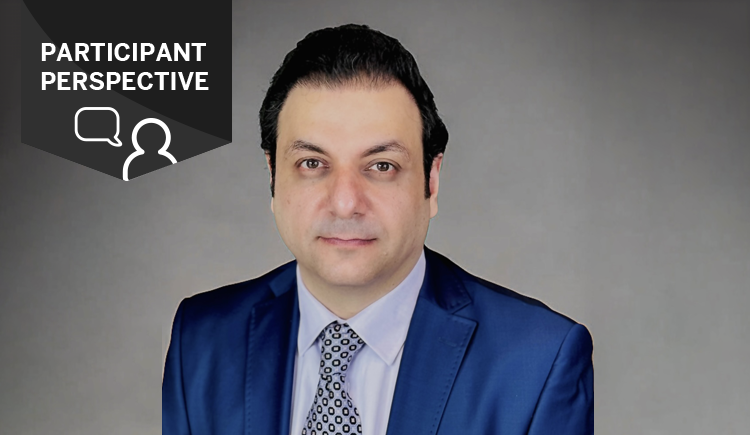
Leadership is fundamental to the success of many human endeavors. Sports, education, the arts, journalism, law, the military, and medicine all can trace successful outcomes to the quality of leadership that is provided.
The medical profession has witnessed inexorable changes over the past several decades. Increasing reliance on molecular markers, the emergence of robotic surgery, health care reform legislation, and increasing utilization of the electronic medical record are just a brief accounting of the changes that occurred in our profession.
Concurrent with these changes in the practice of medicine are changes in medical leadership. It is useful to review how medical leadership has evolved and how it will continue to evolve in the future.
Traditional Medical Leadership
For many years the typical medical department chief or medical school dean was an older white male who had a robust publication history with a regional or national reputation. However, few of these men had any specific leadership training. It was infrequent that any of these positions were attached to specific term limits and individuals typically served as long as they could navigate the intra-organizational politics.
Current Medical Leadership
As medical practice has become more complex, so has medical leadership. Schieffler et al. (2) specifically address the evolution of medical school deanships. They trace the complexity of deanships evolving beyond just academic leadership, but also into the development of organizational missions and strategy, management of faculty practice plans, research budgets, and philanthropy. Similar heterogeneous responsibilities occur throughout medical leadership positions including chairmanships, residency program directorships, and presidencies of specialty societies.
The Critical Components of Leadership
Volumes have been written about the components of leadership, especially in the business arena. However, certain leadership principles are universal and have applicability to medical leadership. I have observed that eight characteristics serve as the underpinning for effective leadership:
- Integrity is critical for all leadership success. The former Wyoming senator, Alan K. Simpson said, “If you have integrity, nothing else matters. If you don’t have integrity, nothing else matters.” Integrity breeds trust and trust is the currency of any successful organization.
- Vision is an essential leadership quality. With the rapidity of change in many aspects of medical practice; science, regulatory requirements, or financial management, vision is a crucial component of effective leadership.
- Humility is another critical leadership quality. There is no shortage of ego in the medical profession. However, with experience, many physicians realize that ‘the smartest guy in the room’ often isn’t. Humility in a leader can be disarming and can engender a culture of teamwork and collaboration. One of my role models, Judah Folkman, had a saying that described the surgical personality, ‘Often wrong, but never in doubt.’ It was Doctor Folkman’s humility, as much as his intellect, that contributed to his extraordinary leadership.
- Leadership is not power; it is persuasion. Many leaders erroneously assume that heavy-handed pronouncements are the hallmark of an effective leader. That is rarely the case. Persuasion is the foundation of good leadership. Persuasion leads to consensus, which is important for the durable, long-term success of most organizations.
- Good leaders avoid isolation and promote a coterie of advisors. This is important for several reasons. Communication is important for anyone in a leadership position and isolation undermines communication. The best way to understand the changing dynamics of any organization is to utilize multiple sets of eyes and ears. A small group of trusted colleagues is an invaluable asset for any leader. In addition, multiple viewpoints promote collective wisdom. Jack Welch, the legendary CEO of General Electric, often quoted the Asian proverb, “All of us are smarter than any one of us.”
- Arrogate not. Effective leaders acknowledge and promote the accomplishments of those around them. I have observed two types of physician leaders— those who are invigorated by the accomplishments of those around them and those who are threatened by them. The leaders who are comfortable in their own skin are the individuals who most often thrive and leave a legacy of success.
- A good leader demands accountability of himself/herself and others. An effective leader will communicate clearly both individual and organizational goals. Reviews of the outcomes will be thorough, fair, and constructive.
- A good leader will know when to fire another individual as well as himself/herself. Firing someone is among the most difficult tasks a leader must do. It often has career and financial consequences for the individual. It should only occur as a follow-up to previous discussions which have not resulted in the resolution of the performance issues.
- A good leader must also possess the insight when to “fire” himself/herself. This can be necessary for a variety of circumstances. Sometimes it is when your leadership no longer resonates. You become aware that your vision and the vision of many in the organization are discordant. Other times, it may be realizing that you have “lost something off your fastball” and your own performance is lagging. Finally, it may be knowing that it is an appropriate time for you and the organization to have a change in leadership.
Training Leaders
The typical medical school curriculum includes two years of basic science courses; the core clinical rotations in internal medicine, surgery, pediatrics, and obstetrics and gynecology at a minimum, usually followed by a year of electives in the fourth year. Medical students rarely receive any formal instruction in writing or oratory, which are fundamental leadership skills. Writing instruction in medical school usually entails no more than composing a history of present illness, past medical history, and review of systems. There is little, if any, practice in writing a coherent narrative or how to frame an effective argument. As for oratory, training in public speaking is usually limited to presenting at grand rounds, nothing more.
Writing and speaking well are important leadership skills for physicians on many levels. Writing well enables physicians to communicate and clarify complex medical issues in the lay press. Physicians do not utilize letters to the editor and editorials often enough to distill medical topics for the non-physician.
Similar to writing well, oratorical skill is a powerful leadership tool. Physicians are called upon to utilize oratory in multiple circumstances. Communicating with patients, interacting with hospital personnel, interviews with the media, and professional presentations are all opportunities to leverage oratorical ability as a means of enhanced leadership.
Future Medical Leadership
Medical practice will continue to be a kinetic process. Doctors are required to possess a more extensive skill set today than they did a generation ago. Undoubtedly, physicians in the future will have increased obligations to interact with the public, the lay press, and the media with both the written and spoken word.
In addition, the face of medicine is changing. The American Association of Medical Colleges reported that for the first time in 2019, women made up the majority of medical students. The era of leadership solely by old white males is over. Females will increasingly occupy leadership roles in medicine as they already have. It will need to be determined if female leadership training differs from men and, if so, how do we provide them with appropriate mentors and role models?
It would appear prudent for medical schools, in reshaping curricula, in the future to consider at least electives in medical leadership, writing, and oratory. For the twenty-first century physician, communication skills will be paramount. They must not enter their practice unprepared. Leadership is an acquired talent.


